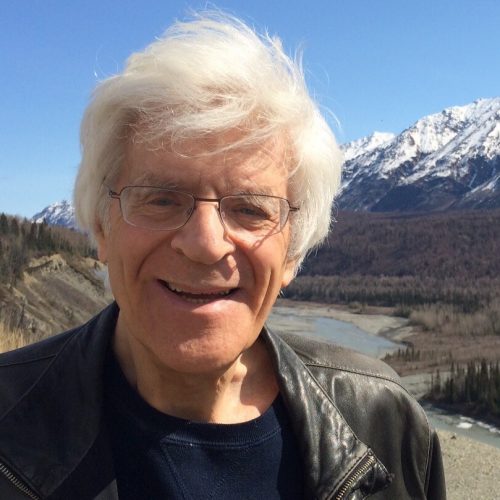
Greg Sandow
Adjunct Faculty
Professional Studies
I grew up in New York, fell in love with opera when I was nine, and with rock & roll at 11. Studied singing, went to Harvard, where I majored in government. Decided I’d compose, and, having written just two pieces, got by a miracle into the Yale School of Music, where I got a master’s degree. And also sang opera, undeterred by reviews that said my strength was my acting. My biggest role was Alberich, in a concert performance of Das Rheingold.
My composing interest ebbs and flows, though I’ve had success when I do it, writing, among other things, four operas (all produced in some form), and three string quartets. I worked at the New York State Council of the Arts, where I learned a lot about classical music management. Then, somewhat to my surprise, I was invited to write a column for the Village Voice, then the top New York weekly. Thus I began a new career as a music critic, becoming one of the few with a national reputation for writing about both classical music and pop.
My column at the Voice was about what then was called the downtown New York music scene, meaning minimalism and beyond, though I also wrote about mainstream classical music for the Wall Street Journal, and for classical music publications. For awhile, I even was classical music critic for Vanity Fair. a post you’ll note they don’t have anymore, which by itself — relevant here, because I’m teaching a course on classical music’s future — shows us classical music losing its place in the world.
Spinning off from all that, I had speaking engagements around the U.S., spent two weeks in Japan speaking about new American classical music on behalf of the U.S. embassy, wrote entries for the New Grove Dictionary of American Music, and was visiting professor at the University of Minnesota. Then I branched out from classical music, becoming chief pop music critic for the Los Angeles Herald-Examiner, a now-defunct daily, where my great interests (getting far from classical music) were hiphop and the then-popular LA hair bands. Later on, when Entertainment Weekly launched, I was its music critic, and later its senior music editor.
In the 1990s, I returned to classical music, where I found that the field had changed, with worries growing about its survival. The future of classical music became my specialty, and in 1997 I began teaching a graduate course on it at Juilliard, teaching it also at Eastman, and moving it now to Peabody, where I very much like the Breakthrough Curriculum. My other Juilliard course, for many years, was on how to speak and write about music, and I’ll be teaching that here, too.
I also wrote about the future of classical music, spoke about it at conferences in the U.S. and abroad, served as a consultant, and did projects with the Cleveland Orchestra and the Pittsburgh Symphony. From a concert series I hosted in Pittsburgh, I have a fond memory: We shaved the head of a volunteer from the audience, while the orchestra played the Bacchanal from Samson et Delilah. (You’ll see the connection.) Maybe that didn’t move the dial on classical music’s future, but wow, it was fun.
I live now in Washington, DC, with my wife Anne Midgette, our 12 year-old son, and three cats. Anne, after an impressive stint at the New York Times, became the superstar chief classical music critic of the Washington Post, which is why we moved to DC.
My musical passions? Right now it’s bel canto opera, which I love for its extreme emotion, for its physical verve, and for something that might seem disreputable — the way its musical forms serve what then were the needs of operatic commerce, which were to write and rehearse operas quickly, and wow the audience.
I also love 1950s rock. And Webern, for his precision and his deep emotion (which I think are two aspects of the same thing), and for what I hear as his discipline, in accepting the sounds his tone-rows gave him.
Two strong musical memories: a production of the Ring a few years ago at the Washington National Opera, which left Anne and me talking for hours about what the work means. And a concert by the late R&B star Luther Vandross, at which I found myself on my feet screaming his name, with no memory of how I got there. Can’t beat that for proof of how much I was moved. I hope — for as long as I live, and in all of my teaching — to keep my passion for all forms of music, letting all of them seize and transform me.